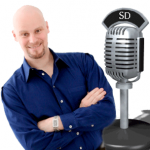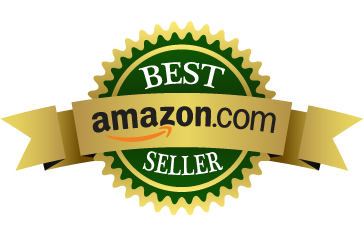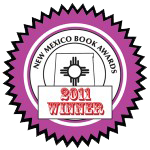Steven Diamond Stop Stressing Now Interview
 Fantastic Interview with Steven Diamond from Stop Stressing Now and Seth David Chernoff about the Manual For Living on Sunday, December 5th, 2010. (Length: 60 Minutes)
Fantastic Interview with Steven Diamond from Stop Stressing Now and Seth David Chernoff about the Manual For Living on Sunday, December 5th, 2010. (Length: 60 Minutes)
Audio clip: Adobe Flash Player (version 9 or above) is required to play this audio clip. Download the latest version here. You also need to have JavaScript enabled in your browser.
STEPHEN DIAMOND: Hello everybody out there. Thank you so much for listening on this beautiful Sunday afternoon where we’re broadcasting live from Las Vegas, Nevada as we do each and every Sunday. Today we have an amazing guest on the show who is the author of a book which I have literary read from cover to cover and as you folks already know, for me that is one heck of a challenge. I read the Manual For Living: A User’s Guide to the Meaning of Life – Reality, and it’s written by a fascinating guy, a two-time cancer survivor name Seth David Chernoff. And let me tell you what, out of all of the books I read, I was just telling him that I get anywhere from 10 to 20 books a week shipped to me from authors all over the world wanting to be on the program. I only make it through about a quarter or sometimes a half of each book before I throw it on a file as being something that I’ve read before. But this book, I read from cover to cover. And I think that this book is worthy of your time and attention, not only that, but I think that it should, the lessons in this book should be taught at the elementary level on up. We should teach our children this. If you have children out there, if you’re a parent, if you’re a caretaker, if you’re a grandmother with children, this is a life lesson that your children truly need to hear, they need to know about. And I can’t recommend this book highly enough. If I was Oprah, this would be on my book club, that’s for sure. And without further ado, I want to bring on the air the author of this book, calling in from Boulder, Colorado, let’s give a great welcome to our good friend, Mr. Seth David Chernoff. Let’s tell people a little bit about you, you know, you have faced death yourself, you’re a two-time cancer survivor and I think that experience alone has given you a tremendous amount of knowledge to pull from. And I know from personal experience that when you look death in the eyes and you’re diagnosed with a terminal illness, you are given privilege I should say to wisdom and knowledge that maybe you wouldn’t have had at some point in the past. Tell me a little bit about you and your journey before you wrote the book.
SETH DAVID CHERNOFF: Let’s see. I grew up in Albuquerque, New Mexico, a pretty traditional up bringing if there is such a thing. I went to public school, had a great family. My mother was a gifted school teacher and eventually became a medical intuitive. My father was a captain in the Navy. And that was kind of my childhood. I ended up going to school in a couple of different places. I went to college and graduated from a school in Australia. I live in Guatemala. I kind of just, you know, I kind of followed my heart. Wherever it took me and eventually it took me to Boulder, Colorado. I was living a great life. I started a marketing company, I was eating great organic food, exercising, I felt like I was doing everything right. And then just one tragic afternoon, I went to the hospital to get something looked at and I just remember sitting in front of this doctor at around 4:30 in the afternoon and he said “Gosh, I think you’ve got cancer and we need to operate tonight”. And I just couldn’t believe it, you know, I think there were so many emotions that went through and you know, I think when you deal with catastrophic illness, you are confronted by so many layers of things whether it’s emotional, spiritual, or physical that challenge your belief system and your structure and it created an incredible gift for me, that was kind of a catapult to the next phase in my life.
STEPHEN DIAMOND: I’ll tell you, that’s an important lesson in itself because whether we choose to believe this or not, everything happens for the greater good of our lives. And it’s all going to work out like stated so prophetically in The Big Lebowski movie that never went anywhere and has resurged in the last few years. But one of the things that interests me the most about this book was how clever you were in detailing out some of life’s most burning questions that we all have, were all born with who am I, why am I here, what is my purpose in life, why is there suffering, you know, how can I find happiness? All of those questions, you laid out in everyday language that anyone could understand. You weren’t trying to be, you know, superior. You weren’t trying to be holier than thou. You just told it like it was. And I really appreciated that about the book.
SETH DAVID CHERNOFF: Thank you Stephen. I think I definitely tried to. And you’ve read it, most people probably haven’t yet. And you know, there’s something about somebody telling you how to live your life that instantly puts you on a defensive and so you kind of have to walk a really fine line. You have to find a way to engage people and you probably notice there are no stories in here. You know the first thing people think about when you say, “Oh gosh, I’m a two-time cancer survivor and I’ve written this award-winning book” and they go, “Oh great, I can’t wait to read all about your cancer experiences and what you went through and how you got through it.” The truth is, yes that is the color of the obstacles that I went through that shaped my life. But the book is not about that, and like you said, it’s really about the things that make your life better, the things that allow each of us to find that inherent happiness and fulfillment that we’re looking for in this world that will allow us to feel like we are contributing, that we are fulfilling our purpose in life.
STEPHEN DIAMOND: Yeah, I did notice that. I noticed that you barely even mentioned the fact that you had cancer on the book. It’s kind of not even anywhere to be found. Another interesting thing about the book is that you don’t have to read it from cover to cover like I did, you could literally pick up the book and just start reading it from anywhere. That’s also a very unique feature about the book. So tell me a little bit about the inspiration. When did you get the idea to write the book? And how did you know what kind of a book you wanted to write?
SETH DAVID CHERNOFF: Well, Stephen excellent question. I guess that I have to go back to my time as a child. I remember as a little boy being very curious about life but also very troubled, because I didn’t understand why there was so much suffering, and why people were in so much pain, and why they were unable to find happiness in this world. And I really had a hard time being on this planet and seeing people suffer. It just really was not something that I could handle very well. But as I went through life, I started paying attention and asking lots of questions and, you know, there are certain answers that I kind of discovered as I went through life. But when I went through cancer the first time I was 25, and I just started writing, it started of pouring out of me. And its not like I had nothing else going on, I was running two companies. I had at the time I think maybe ten or fifteen employees and I was a busy guy. I just fell in love with my wife, I had a boy and a second boy on the way, I was very, very busy. But this information was just pouring out of me and any minute that I could stop working or step away from my life, I was writing. So, it’d be 1 in the morning or during lunchtime or, you know, anytime that I could write and that went on for five years. And at the end of five years, I had all this writing and I didn’t know what it was all about or where it was going. At that point, I was diagnosed with the second cancer, the second time it was Thyroid cancer. And at that point, I was 30, and I’d stop writing. And I said, “Gosh, what am I going to do with all this information?” And so I started putting it together and organizing and then cleaning it up and that took another five years of just kind of getting these information in a format that I felt like was acceptable or that information I felt that people could adapt and understand and appreciate. And then I realized that it was a book, but it’s too much of a book. It was around 800 pages, and I felt like that would be far too overwhelming so I broke it up into three. And all of a sudden, you know, it just started to come clear. When you follow your path in life and doors open and you pay attention, you get all these answers. You know the title of your book, the way it should be presented, the color palette. Little things that maybe wouldn’t have been realized had you not been aware or present and they just awaken themselves just like when you meet someone you’re supposed to connect with and spent part of your life with. Sometimes you just know it, just comes from inside of you. And I think that’s kind of how my book was formed in many ways that’s, you know, how all of our lives are formed.
Leave a Website Comment










